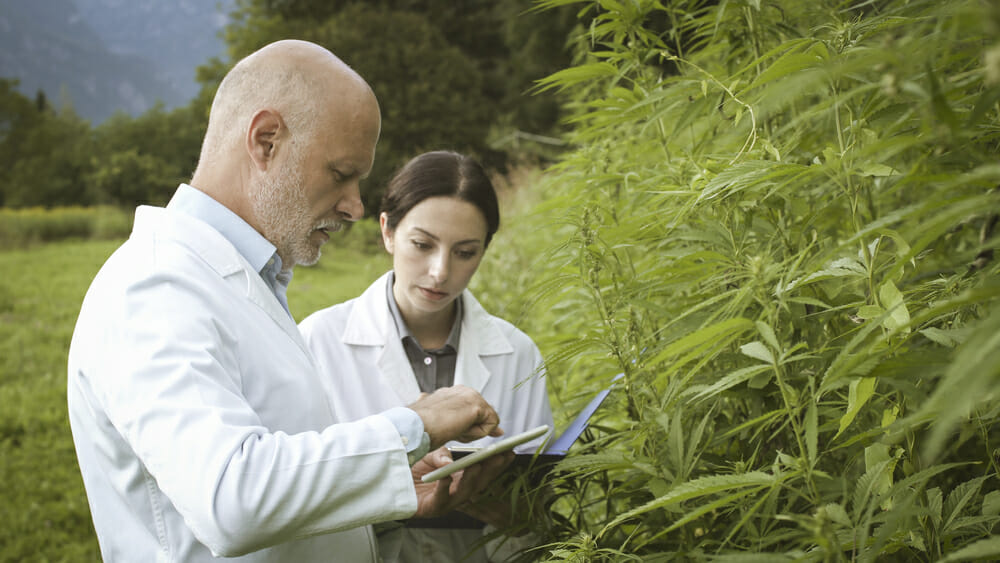
Sesame Street had a weekly segment called “one of these things.” Can you hear the song in your head? It went like this: “One of these things is not like the other. Some of these things are kinda the same”. That is how many people feel (but not the DEA) about cannabis sitting as a Schedule 1 drug. With cocaine, and heroin, and methamphetamines.
The ongoing effort to have the federal government reschedule cannabis went up in smoke again on August 31, 2021. It was the conclusion to an appeal by Dr. Suzanne Sisley to have cannabis removed from the Schedule 1 category of the U.S. Controlled Substances list.
What was behind the very publicized fight in the Supreme Court against the DEA? The right for researchers to provide what the federal government has asked for; evidence-based research about medical marijuana. And American researchers are not backing down.
The case was originally brought by Jeramy Bowers (MMJ patient) and an inmate in the California penal system named Stephen Zyszkiewicz. The appeal was launched by Sue Sisley, MD, in June 2020.
Who is the woman that has been challenging the DEA so assertively? That would be Dr. Sue Sisley, and she is a pioneer in the field of cannabis research. One of America’s leading experts on the therapeutic potential of cannabis.
Based in Arizona, Sue Sisley, MD, serves as the President and Principal Investigator at the Scottsdale Research Institute (SRI). Before federal agencies consider rescheduling, they have asked for data sets that are already available in other countries like Israel.
The mission statement of the Scottsdale Research Institute (SRI) states:
“Research will focus on the potential medicinal benefits of cannabis for diseases and conditions as specified by the National Academy of Sciences, Institute of Medicine Report (1999 and 2017) and by the Workshop on the Medical Utility of Marijuana, National Institutes of Health (1997). The SRI will strive to conduct high-quality, controlled scientific studies intended to ascertain the general medical safety and efficacy of cannabis and cannabis products and examine various forms of cannabis administration. The Institute will be seen as a model resource for health policy planning by virtue of its close collaboration with federal, state, and academic entities. The SRI will also highlight the current barriers to federally-regulated Marijuana Research.”
The SRI is just one of many institutions that have applied for permission to grow and study cannabis. In 2020, the DEA started its ‘303’ investigations to process a total of 35 clinical study applications involving permission to grow.
A company called MMJ Bio Pharma Cultivation is an applicant that would like to be a bulk producer of cannabis exclusively for researchers in the United States.

Sue Sisley, MD, has been conducting controlled trials of smokable cannabis (including vapor intake) to give that ‘evidence-based data’ that the FDA has demanded. Dr. Sisley aims to move whole flower or raw cannabis through the FDA drug approval process to remove restrictions for medical use.
Have you asked yourself why there aren’t many long-term studies of cannabis and human health in the United States? It was because, until this year (2021), the U.S. federal government has had an iron grip and monopoly on all cannabis that could be used for research.
Sounds complicated, right? Here’s how it worked. If you were a privately funded or federally funded research team, you could only get cannabis from one source. The University of Mississippi was the only legal cultivator of marijuana for clinical studies. It was authorized under the National Institute of Drug Abuse (NIDA) Drug Supply Program.
The process to get cannabis for a clinical study? Arduous would be an understatement. And then, even if you were permitted to purchase cannabis as a researcher, there was a waiting list. Administrative roadblocks to stifle cannabis research? It appears that way.
The government wants evidence-based data on the benefits and possible detrimental effects of long-term use of cannabis. But since 1968, it has also maintained a monopoly on cannabis cultivated for scientific studies. Asking for something and then making it virtually impossible to achieve.
One problem with using Mississippi as the pot farmer for American science was the University didn’t do an excellent job of keeping up. Of the strains of cannabis that the University of Mississippi has grown, the highest potency is 6.7% THC. That is the maximum potency available to researchers.
Politico shared “The cannabis industry’s next war: How strong should its weed be?” that addressed the rising potency levels. Researchers need more potent potency cannabis to conduct studies that are applicable to the type of marijuana being used by patients today. And generally speaking, medical dispensaries aren’t selling out of 7% THC products.

In 2016, bowing to pressure from pharmaceutical companies and health researchers, the DEA made a change. It allowed health researchers to submit a proposal to produce cannabis for clinical research. In most cases, the applicants were Universities specializing in health studies. Sites that wanted to be able to grow their cannabis for clinical studies.
The Drug Enforcement Agency received thirty-three (33) applications. The applications would expand the production of cannabis for research purposes. That meant authorizing more growers, diversification of strains (and potencies) available to researchers. It would essentially get the ball rolling and allow impactful scientific studies of cannabis to happen in the United States.
Then, the DEA sat on it for years. In 2018 there was a leaked internal memo “Opinion for the Acting Chief Counsel Drug Enforcement Administration.” The summary of the complicated legislative argument in the memo was that the DEA wanted to possess all research cannabis produced.
The DEA did not want to allow researchers to grow, process, and retain cannabis for clinical studies. And the memo also revealed federal lawmakers felt growing cannabis for research purposes was illegal. The feds did not want to allow that loss of control—the ability for any approved research team to cultivate their strains of cannabis for human health study.
When you are a legislative body facing a growing tide of citizens who want to see cannabis legalized? You had better sell a story that makes sense. And nothing makes more sense than telling Americans that “we’re not sure cannabis is safe.” Then using that precautionary approach to block legalization.
That leaked internal memo from 2018? It revealed the Fed’s resistance to cannabis legalization. It also highlighted the hypocritical approach the government was taking to legalization.
See what they did there? Talk about an effective but also very transparent ‘bait and switch’ move. The memo left researchers dejected but also angry that the DEA had accepted the proposals at all. Especially since it was clear, they had no intention of authorizing any more scientific cannabis grow permits without a fight.
The DEA released some Memorandum of Agreements (MOAs) to licensed cannabis cultivators in May 2021. The announcement marked more than fifty (50) years of blocking American health research by prohibiting access to cannabis for clinical studies.
Read: “DEA Continues to Prioritize Efforts to Expand Access to Marijuana for Research in the United States.”
Source Web 2021: dea.gov
According to the report, the approved applicants will receive DEA registrations. Then, each company will be able to provide cannabis for clinical research. The Drug Enforcement Agency noted that there were 575 researchers licensed across the country.
The appeal in the 9th Circuit Court to reschedule cannabis may have been lost. But something important was won—a clear path to innovative research into cannabis, therapeutic applications, and human health.
No Information on MarijuanaDoctors.Com should be used to diagnose, treat, prevent or cure any disease or condition. You can view our Full Disclaimer here.